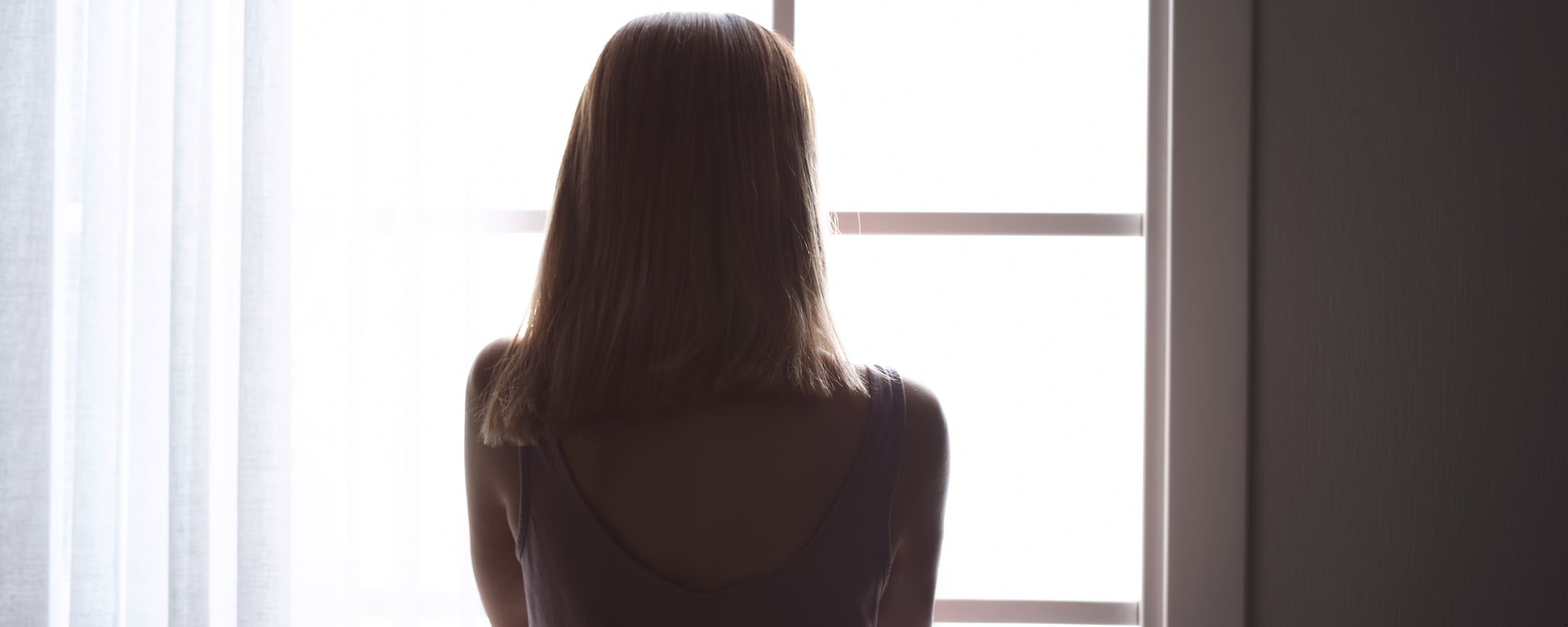It’s well known that anxiety and sleep problems are closely connected, often creating a cycle that can negatively impact many areas of your life. If you can’t sleep because of anxiety, you’re not alone! In this article, we’ll explore the many ways anxiety and sleep issues feed into one another and why breaking that cycle is crucial. Getting quality sleep is essential for maintaining your mental health, especially if you’re already managing an anxiety disorder. Unfortunately, anxiety symptoms can make it difficult to fall or stay asleep, leading to even greater emotional strain. Let’s dive into the link between anxiety and sleep and explore effective ways to care for yourself so you can get the rest your mind and body need to heal.
What’s the Connection Between Anxiety and Sleep Issues?
Anxiety is related to sleep issues in a number of ways. It’s important to note that anxiety can exist as a prior condition that is exacerbated by poor sleep. Additionally, trouble sleeping can increase anxiety or even lead to the development of symptoms. Thus, the connection between the two is cyclical. To elaborate, anxiety can lead to poor sleep but lacking in quality sleep can also lead to anxiety.
Severe anxiety affects your quality of life because you face regular, frequent symptoms, including at night. It is not uncommon for people with anxiety to experience restlessness, racing thoughts, and physical signs of anxiety when they’re trying to sleep. Understandably, this can lead to trouble falling asleep, staying asleep, and reduce the quality of rest due to altered sleep patterns.
On the contrary, poor sleep can lead to the development of symptoms that co-occur in anxiety disorders. If you’re predisposed to anxiety (depending on a number of factors including your genetics), you’re especially at risk of sleep impacting your moods. One example of the link is the way sleep disorders are proven to heighten the anxiety risk. For instance, a sleep disorder called obstructive sleep apnea syndrome (OSA) is closely linked to the onset of anxiety.
And of course, not getting good sleep also worsens pre-existing anxiety. Getting insufficient sleep leads to more negative emotional responses and less positive ones. Further, lack of sleep is shown to boost activity in the parts of your brain that are responsible for anxiety.
How Does Anxiety Affect People?
Anxiety creates many negative impacts on a person’s health and life. If you have an anxiety disorder, it is a diagnosed mood disorder that impacts your state of wellness. Everything from your moods to thoughts to behaviors can be altered by your anxiety symptoms. Notably, common anxiety symptoms include panic, dread, grief, and fear, and physical ailments like tension, stomachache, or chest pains.
If you find yourself frequently plagued by uncontrollable fears and worries, as well as overthinking about situations, these are indications. You could have an anxiety disorder that is preventing you from living in a peaceful frame of mind. Fortunately, you don’t have to live that way. The first step is speaking with a mental health professional to receive a diagnosis. From there, you have many options for professional treatment, including medication management and behavioral therapy. Notably, anxiety disorders often co-occur with other mental health disorders—for instance, depression. We can also help you obtain a dual-diagnosis to treat both concerns at the same time.
Why Does Anxiety Make It Hard to Sleep?
We’ve discussed that having anxiety can impair your ability to sleep and enjoy quality rest. But why is there a connection between anxiety and sleeping? Here are a few concrete ways anxiety disorders can hinder sleep.
Overthinking
Overthinking or ruminating over scenarios, worries, and “what ifs” at night is a common experience for people with anxiety disorders. This type of anxiety is outside of your control. Sleep could offer an escape from your symptoms but your symptoms are keeping you awake. Overthinking is a serious hindrance to quality sleep. In fact, there is a link between this symptom of anxiety and insomnia. Simply put, insomnia is a sleep disorder where people have trouble sleeping and staying asleep. One symptom both anxiety and insomnia have in common is hyperarousal, where your brain and body stay on high alert. Notably, mental hyperarousal that also includes worrying occurs in both insomnia and anxiety to keep people awake.
Physical Symptoms
Falling asleep with anxiety is incredibly challenging when you’re experiencing symptoms of your disorder at night. Some of the ways you might notice an anxiety disorder in your body include:
- Chest pain
- Fast heartbeat
- Muscle tension
- Headaches
- Clammy skin
- Nausea
- Diarrhea
- Lightheadedness
- Trouble regulating your body temperature
Feeling uncomfortable in your body, especially when combined with racing thoughts that make you feel afraid and helpless, prevents sleep. You may experience nightmares or wake up often throughout the night.
Reach Out for Help With Addiction and Co-Occurring Mental Health Disorders
Are you struggling with substance abuse and mental illness?
Royal Life Centers at Chapter 5 is here to help you recover. Because We Care.
The Cycle of Poor Sleep and Mental Health Issues
Poor sleep and mental health issues like anxiety are cyclical issues that keep continuing unless you intervene. While you sleep, your brain and body undergo important repairing and healing that is necessary to stay in peak health. If you don’t get enough quality sleep each night, your mental wellness will decline. And as we know, mental issues can lead to worsened sleep.
The inability to sleep can lead people to take other measures to escape from their symptoms. To elaborate, sleep can bring relief from the mental strife of worrying, overthinking, and dreading new symptoms. For some people, they feel a strong desire to escape their symptoms because they have no coping mechanisms. In many cases where individuals don’t know what to do, they turn to unhealthy avenues like substances. Self-medicating with substances happens often in cases of anxiety and insomnia. However, drugs and alcohol are only temporary solutions that worsen the problem over time. If you develop an addiction, you’ll have to keep intaking substances but their effects will wear off. Plus, drug abuse can worsen anxiety, and thus, sleep.
We can set you up with positive coping tools for your anxiety disorder, including medication, healthy habits, therapy activities, and mental practices.
Tips for Better Sleep with an Anxiety Disorder
Waking up unrested each morning due to problematic sleep is no fun. You may need to seek outside help for your anxiety and sleep issues. But first, try these tips for sleeping better and see if your rest improves.
- Try relaxation techniques before bed, like yoga, meditation, or deep breathing
- Drink a sleep-positive beverage, like chamomile tea, black cherry juice, or turmeric latte
- Create a sleep routine that prepares your body and mind for bed
- Get more exercise during the day to tire your body
- Avoid screens and social media for at least an hour before bedtime
- Journal your thoughts before sleeping for a clear mind
- Play sleep music or relaxing frequencies when you’re falling asleep
The Dangers of Medication for Sleep
One thing we do not recommend for sleep is self-medication with sleep medications. Abuse of sleep medications is common in people who struggle with anxiety or insomnia, along with other drug types that numb their symptoms. The desire to escape into sleep is completely understandable. However, self-medicating with powerful substances is not a safe solution. Instead, better options are professional medication management and therapy to teach coping mechanisms. To elaborate, we can provide you with a medication prescription for your anxiety in rehab at Chapter 5 Recovery. To ensure you follow your prescription safely, you will enter medication-assisted treatment (MAT), which is programming for safe medication use. Additionally, we can help you learn positive coping skills for reducing and managing your anxiety symptoms.
Therapy for Sleep Issues
Evidence-based approaches like cognitive behavioral therapy (CBT) and therapy for insomnia (CBT-I) are proven to improve sleep and reduce anxiety symptoms. These forms of behavior therapy for insomnia help address both the psychological and behavioral patterns that affect sleep, often in combination with improving sleep hygiene. Sleep studies show that managing mental health disorders through integrated treatment plans significantly enhances sleep quality. Understanding the link between disorders and sleep is essential for long-term management and treatment of anxiety and stress-related conditions.
Professional Help for Anxiety Near Me
The connection between anxiety and sleep is deeply intertwined, with conditions such as generalized anxiety disorder, panic disorder, and stress disorder (including PTSD) often leading to chronic insomnia and other sleep disturbances. Anxiety-induced sleep issues can make it difficult to fall asleep or stay asleep, and in severe cases, individuals may experience nocturnal panic attacks that further disrupt sleep quality. Obsessive-compulsive disorder (OCD) and bipolar disorder are also known to affect sleep regulation, particularly REM sleep and the brain’s serotonin reuptake processes, which are crucial for emotional balance and restorative rest. Sleep deprivation worsens emotional responses to stressful events, creating a cycle where anxiety and poor sleep reinforce one another.
Getting professional help for your anxiety can also help with sleep. If your anxiety is lowering your quality of life, it could be time to explore treatment at Chapter 5. For example, your anxiety symptoms should not disturb your sleep and cognitive functioning. You shouldn’t have to live that way, and you don’t have to! If your anxiety is stopping you from sleeping or causing problems beyond sleep issues, professional help may be the right option. We understand you likely have concerns about timelines, program details, and paying for treatment, and we’re here to answer questions! You can find the relief you’re looking for at our mental health treatment center. Contact us today to resolve the never-ending cycle of anxiety and sleep issues.
- Anxiety and Sleep – Sleepfoundation.org
- Anxiety Dreams Are a Thing — Here’s How to Cope – Healthline
- Depression, Anxiety, Alcohol and Other Drugs – Canadian Mental Health Association (CMHA)
- How Sleep Deprivation Impacts Mental Health – Columbia University Department of Psychiatry
- Sleep and Anxiety: From Mechanisms to Interventions – ScienceDirect
- The Correlation of Anxiety and Depression with Obstructive Sleep Apnea Syndrome – Journal of Research in Medical Sciences
- Tired and Apprehensive: Anxiety Amplifies the Impact of Sleep Loss on Aversive Brain Anticipation
- What Is Inpatient Treatment? - June 30, 2025
- How Does Heroin Abuse Affect the Body? - June 23, 2025
- Choosing the Best Inpatient Mental Health Facilities in Arizona - June 17, 2025













